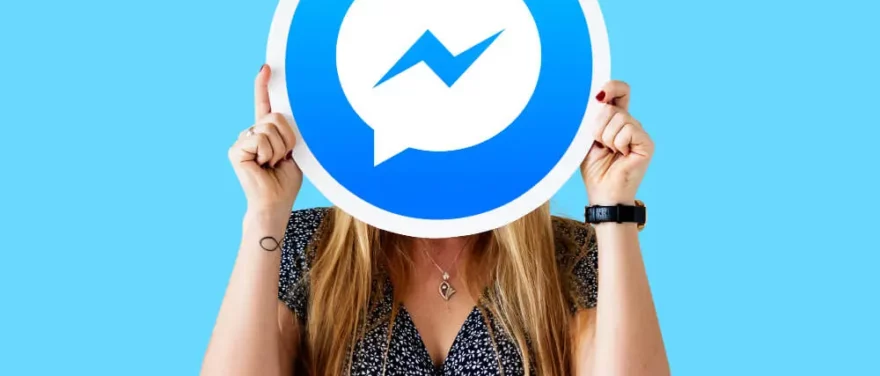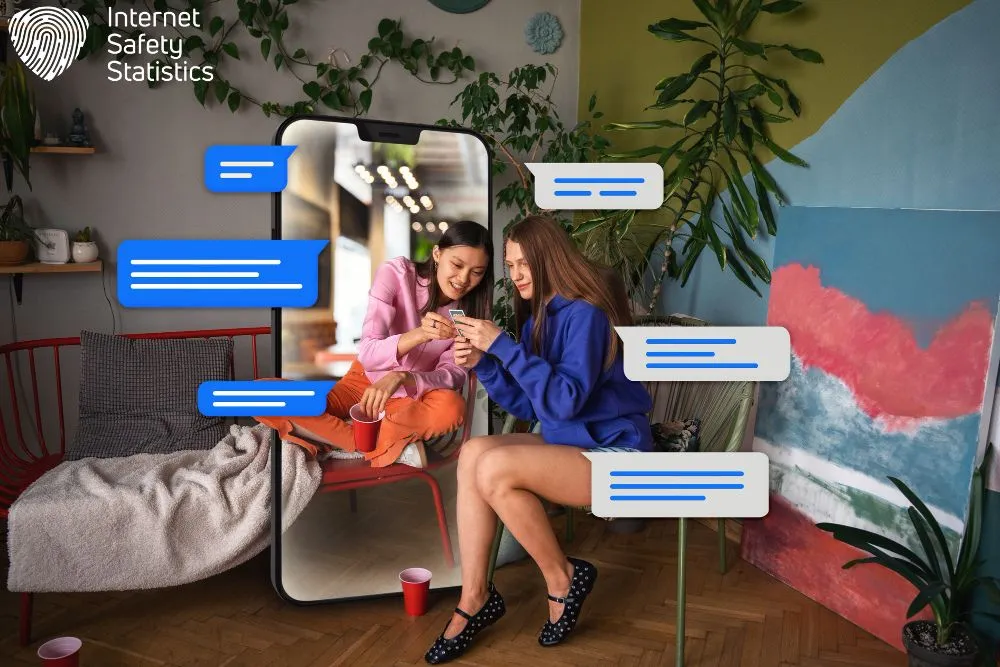
Clearly, safeguarding the privacy of personal conversations is paramount. This article delves into the vital topic of how to encrypt Facebook Messenger chats, a fundamental yet often overlooked measure in modern digital security. As we increasingly rely on messaging apps for everything from casual banter to sensitive exchanges, understanding the role of encryption becomes more critical than ever.
By employing this essential security tool, we can shield our communications from prying eyes, ensuring that our thoughts, feelings, and information remain protected from unauthorised access. Whether engaging in private discussions with loved ones, coordinating confidential plans with colleagues, or simply expressing ourselves freely, encryption empowers us to navigate the digital world with greater peace of mind, knowing that our conversations remain under our control.
Understanding Encryption
Encryption acts as a digital bodyguard, standing guard over your sensitive information and shielding it from unauthorised eyes. At its core, it’s a sophisticated process that scrambles data using complex algorithms, transforming it into unreadable code. Only those possessing the secret key can unlock this code and access the original information. Think of it like a personalised vault for your messages, photos, and files, accessible only to those for whom you grant permission.
Encryption Algorithms
Just like there are different types of locks, there are various encryption algorithms, each with its own strengths and weaknesses. Some popular warriors in this digital armoury include:
- AES (Advanced Encryption Standard): Often used for securing data at rest, like files stored on your device. Imagine it as a robust padlock, offering a high level of protection for sensitive information.
- RSA (Rivest-Shamir-Adleman): This algorithm relies on complex mathematical relationships to create public and private keys. Picture it as a two-part key system, where the public key allows anyone to encrypt messages, but only the private key holder can decrypt them, ensuring secure communication.
These are just a few examples, and the choice of algorithm depends on the specific needs and security requirements. By understanding how these algorithms work, you gain a deeper appreciation for the invisible shield protecting your digital life.
End-to-End Encryption
In the realm of messaging, end-to-end encryption emerges as a champion of privacy. Imagine writing a letter and then sealing it with a wax stamp that only your recipient has the key to break. That’s essentially what end-to-end encryption does.
The message is scrambled from the moment it leaves your device until it reaches the intended recipient, ensuring that no one, not even the messaging platform itself, can peek inside. This creates a secure tunnel for your conversations, shielding them from unwanted intervention and keeping your thoughts and exchanges truly private.
By understanding these key concepts, you gain a deeper appreciation for the power of encryption in safeguarding your digital life. Remember, just like you wouldn’t leave your house key lying around, don’t underestimate the importance of protecting your online information with the right encryption tools.
How to Encrypt Facebook Messenger for iPhone

Facebook Messenger offers two types of chat options: standard chats and “Secret Conversations.” Only Secret Conversations utilises end-to-end encryption (E2EE) on iPhones. Here’s a breakdown of how E2EE works on Facebook Messenger for iPhone:
- Device Keys: Both your iPhone and the recipient’s iPhone generate unique device keys. These keys are randomly generated and stored securely on each device. They are never shared with Facebook or anyone else.
- Session Key: A temporary session key is generated. This key is also randomly generated and used to encrypt individual messages within the conversation.
- Message Encryption: Each message you send is encrypted using the session key on your device. This scrambled message is then sent to the recipient’s device.
- Message Decryption: On the recipient’s device, the message is decrypted using their device key and the session key. Only then can the recipient read the original message.
Important points to remember
- Device Verification: Before starting a Secret Conversation, you can verify the recipient’s identity through a device key fingerprint. This ensures you’re communicating with the intended person and not an imposter.
- Limited Features: Secret Conversations have some limitations compared to standard chats. For example, you can’t send payments, forward messages, or react with GIFs.
- No Cloud Backup: Messages in Secret Conversations are not backed up to the cloud. If you lose your device or uninstall the app, the messages will be permanently deleted.
- End-to-End, not Device-to-Device: While messages are encrypted from one device to another, Facebook still has access to metadata like who you’re chatting with and the time of your messages.
It’s important to note that Facebook Messenger uses the Signal Protocol for E2EE, an open-source and well-regarded encryption standard. While E2EE provides strong protection for the content of your messages, it’s important to remember that other information, like your profile picture and name, is still visible to others on Facebook.
Encryption on Facebook Messenger for Android

Facebook Messenger on Android offers “Secret Conversations”, which utilise end-to-end encryption (E2EE) to protect the content of your chats. Here’s a detailed guide on how to activate and use it:
- Open the Facebook Messenger app on your Android device.
- Tap the compose message icon (pencil symbol) in the top right corner.
- Search for the contact you want to chat with or select them from your list.
- Tap their profile picture/name at the top of the chat window.
- Scroll down and tap “Go to secret conversation” under “More Actions”.
- A new chat window will open with a padlock icon indicating it’s a Secret Conversation.
Additional Options
- Device Verification: Before starting the conversation, you can verify the recipient’s identity by comparing their “Device Key Fingerprint”. This ensures you’re not communicating with an imposter.
- Disappearing Messages: You can set messages to disappear automatically after a certain amount of time using the timer icon next to the chat bar.
- Manage Devices: Go to the chat info screen (“i” icon) and tap “Manage Devices” to see where the conversation is active and revoke access if needed.
Important Points to Remember
- Secret Conversations have some limitations compared to standard chats. You can’t send payments, forward messages, react with GIFs, or use chatbots.
- Messages in Secret Conversations are not backed up to the cloud. If you uninstall the app or lose your device, the messages will be permanently deleted.
- While the content of messages is encrypted, Facebook still has access to metadata like who you’re chatting with and the time of your messages.
- Facebook Messenger uses the Signal Protocol for E2EE, an open-source and well-regarded encryption standard.
Extra Tips for Enhanced Security
To ensure a secure digital environment, it is crucial to take proactive measures. This section provides important tips to improve the security of your Facebook Messenger interactions. By enabling two-factor authentication for your Facebook account, regularly updating the Messenger app, and being cautious of potential phishing attempts, users can strengthen the privacy of their conversations and safeguard against new security risks. These practical tips aim to equip users with the knowledge and tools required to navigate the digital landscape with increased security awareness.
Two-Factor Authentication for Facebook Account
Implementing two-factor authentication (2FA) is pivotal to augmenting the security of your Facebook account. By activating 2FA, an additional layer of protection is added, requiring a secondary verification step beyond the standard login credentials. Users are advised to explore and leverage various 2FA methods, including authentication apps or SMS verification, to fortify their accounts against unauthorised access.
Regularly Updating the Messenger App
Regular updates to the Messenger app are essential for maintaining robust security. These updates often include the integration of the latest security patches, addressing vulnerabilities and enhancing the overall resilience of the application. Users are encouraged to prioritise the regular updating of the Messenger app, and enabling automatic updates is a prudent measure to ensure continuous protection against emerging security threats.
Avoiding Suspicious Links and Phishing Attempts
Heightened awareness is crucial in avoiding potential security threats. Users should exercise caution and refrain from clicking on suspicious links or responding to unsolicited messages. Educating oneself about common phishing techniques and being vigilant against phishing attempts contributes significantly to the overall security of personal data and conversations. By adopting a discerning approach, users can mitigate the risk of falling victim to malicious activities aimed at compromising their Messenger security.
What is the most secure messenger app?
Signal is often considered the champion of secure messaging; it boasts open-source code, end-to-end encryption for all messages and calls, and a transparent privacy policy. They don’t collect metadata and resist monetizing user data.
How safe is Messenger encryption?
Messenger encryption is secure for message content in “Secret Conversations”, but Facebook still sees who you talk to and when. For stronger, default encryption, consider apps like Signal or Telegram.
Can someone access my Messenger?
It depends. Standard Messenger chats are not secure; someone could access them if they hack your account or gain access to your device. Secret Conversations have end-to-end encryption where only you and the recipient can read the messages, but others, including Facebook, can still see who you’re talking to and when.
Understanding how to encrypt Facebook Messenger emerges as a fundamental aspect of fortifying the security of digital conversations. As individuals navigate the complexities of modern communication, the implementation of encryption stands as a proactive measure to safeguard sensitive information from unauthorised access. Stay safe!
